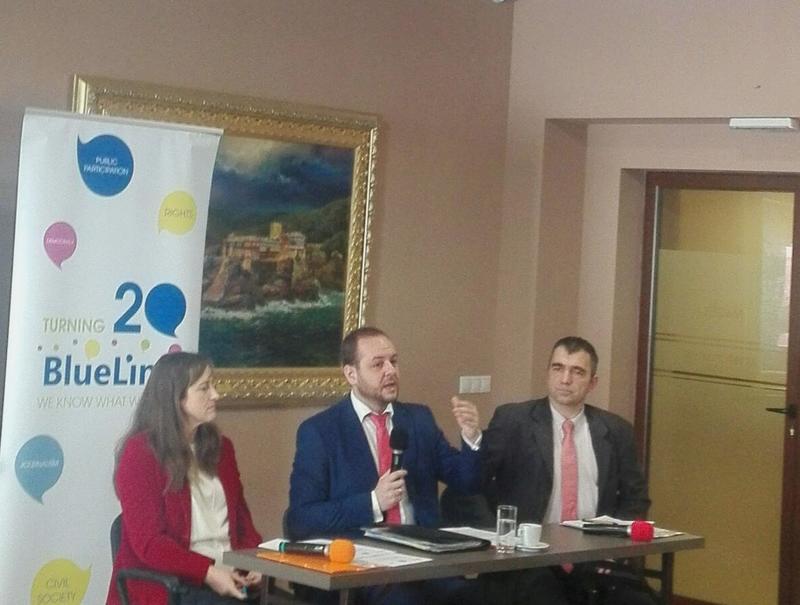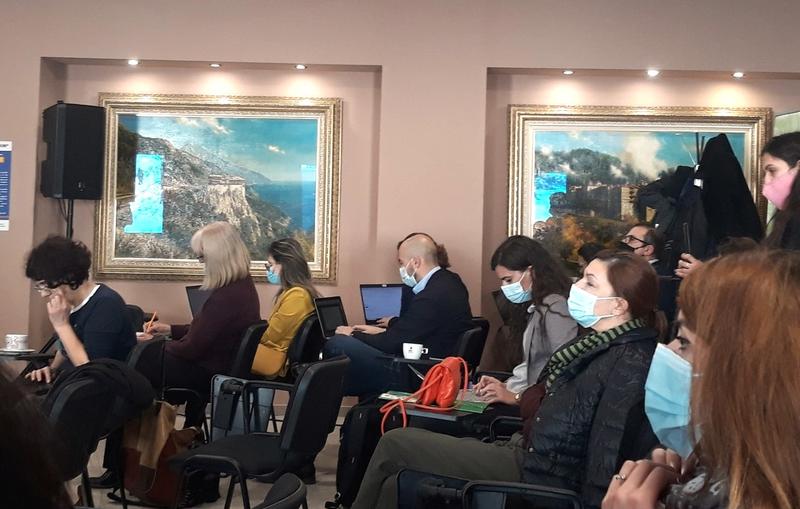Minister Sandov: RES present an opportunity for energy independence and climate change adaptation
11 Feb, 2022 | 12:55Renewable energy sources (RES), photovoltaic and wind power in particular, present an excellent opportunity for Bulgaria for energy independence and climate change adaptation. This was stated by Deputy Prime Minister for Climate Change and Minister of Environment and Water Borislav Sandov yesterday during the forum “Possible solutions to energy problems and overcoming climate challenge”.
“Coal can remain part of the energy mix, but only during this part of the year when it is needed. It is important that electricity consumers are not only consumers, but also have the opportunity to produce energy that returns to the electricity grid,” he added. According to Minister Sandov, the measure to replace heating appliances should be supplanted by the installation of solar panels. He will put this idea forward at an upcoming meeting in Brussels next week for discussion of the framework for the 2021-2027 Environment Program.
“Adapting to and mitigating the negative impact of climate change requires cooperation among institutions,” said Sandov. The Ministry of Agriculture is considering a mass campaign for forest protection and afforestation, which will also contribute to reducing high levels of air pollution. This will be accompanied by the construction of green belts along heavy traffic roads. Sandov is convinced that concrete action is needed now to reach the goal of 55% greenhouse gases reduction by 2030 and carbon neutrality by 2050. According to Minister Sandov, reducing emissions is extremely important for the security of citizens, including climate change caused natural disasters.
„It is clear to climate science that if we do not reduce the negative effects of climate change, we will experience problems, such as fires, droughts and floods, more often“ said Erica Hope, policy director at the European Climate Foundation during the forum. According to her, while Europe‘s main goal is to achieve zero emissions by mid- century, Bulgaria has not taken decisive steps yet in this area, as other EU member states have. “There is still time for Bulgaria, and efforts to reduce emissions will lead to an increase in the quality of life and business opportunities in the country,“ said Hope.
„Climate change is one of the few challenges that unite people, businesses and politicians globally. But apart from being a problem, it is also an opportunity for a better future for energy, the economy, and society as a whole,” said Georgi Stefanov, head of the Office of the Deputy Prime Minister for Climate Policy and longtime expert in the field of climate.
“The Climate Change Limitation Act lacks specific goals and steps to reduce emissions, and the omission of carbon neutrality as a goal is a huge loss for the Bulgarian economy,” said Julian Popov, adviser to the European Climate Foundation and former interim minister of environment and water. “In addition to our moral obligations and our commitment to the security of citizens and the protection of the environment, we must also keep in mind the industry and the economy. At the heart of the process must come a clear and well-structured climate law,” added Popov.
“Bulgarian law must introduce national climate targets by 2030 or 2050 and conditions to ensure that policy is developed in line with these targets,” added Plamen Peev, senior expert on green policies at BlueLink Foundation - the organizer of the forum.



